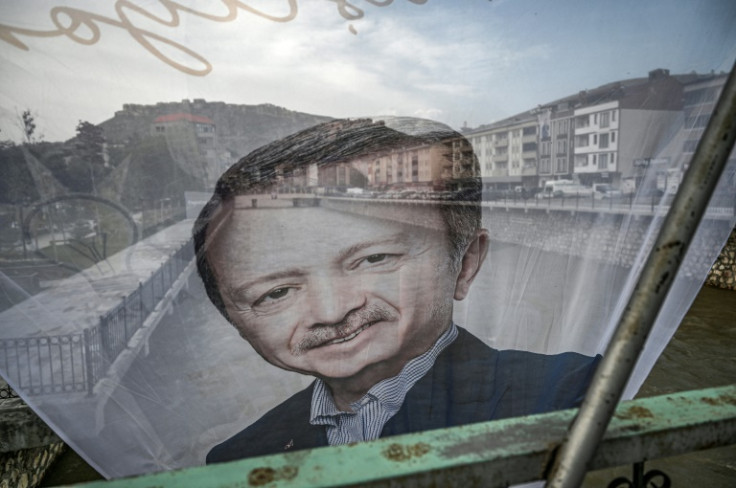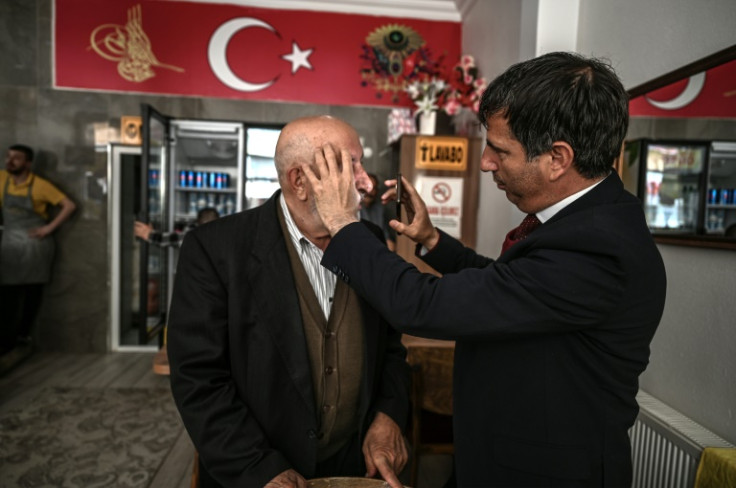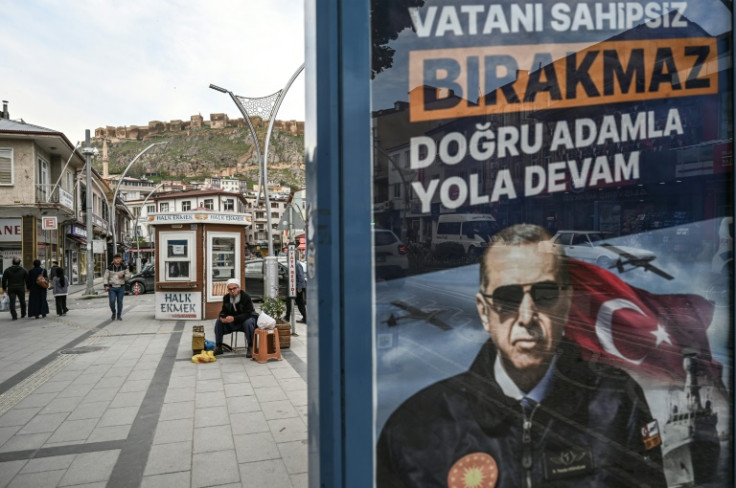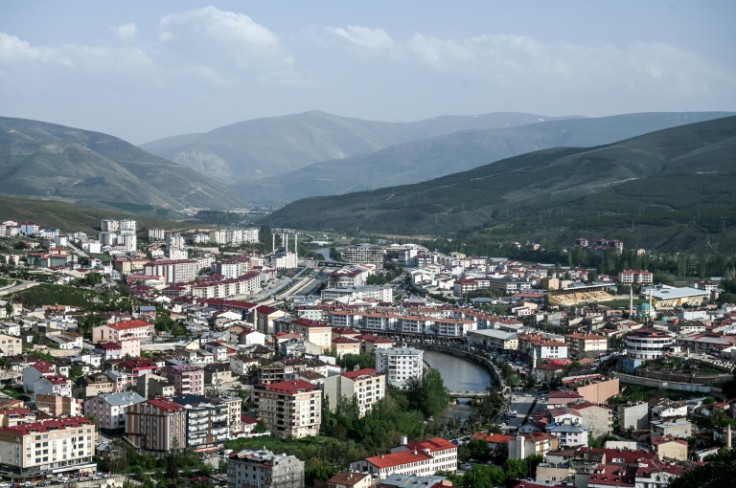Erdogan Is 'Family' In Turkey's Conservative Heartland

Old Fiat cars and yellow tulips dot the eastern Turkish town of Bayburt, the heart of President Recep Tayyip Erdogan's ultra-loyal conservative base that is ready to extend his two-decade rule to 2028.
Betraying a serene calm hanging over the picturesque province of the same name, Bayburt voters roared into life for Erdogan in the first round of Turkey's presidential election on May 14.
Almost 80 percent of the electors there plumped for Erdogan, his highest vote share in a single province, helping him win 49.5 percent of the national ballot and become a strong favourite in Sunday's runoff vote.
"Getting to know the heart of Bayburt is getting to know Turkey," said Orhan Ates, a newly elected MP for Erdogan's ruling Islamic-rooted AKP party in the parallel parliamentary vote.
"Are you ready to re-elect our president?" he asks passers-by, greeting men holding Islamic prayer beads with a knowing nod.
A 47-year-old eye doctor, Ates holds impromptu appointments with patients in the street, issuing a prescription on a crumpled piece of paper to one man wearing worn-out shoes.
"I started as a shoe shiner, I became a medicine professor. People see themselves in me, like we see ourselves in Erdogan," whose family originates from neighbouring Rize province, Ates told AFP.
Erdogan "talks to everyone, not just to the elites", he said.
"We're a big family here and Erdogan is a part of it. He's as solid as our castle," said provincial AKP official Haci Ali Polat, referring to a centuries-old fortress towering over the town.
Residents who spoke to AFP said they stayed faithful to Erdogan because he repelled attacks by foreign powers, just as Bayburt fought Russian invaders in the 19th century.
"We are nationalist and conservative and we love Erdogan," enthused Bedirhan Bayen, a 26-year-old university graduate speaking from his father's shop.
"What people want is a strong leader," he said, admitting he would have liked a "new face" but judging secular opposition leader Kemal Kilicdaroglu as "weak".
Muhammed Emre Teymur works in the construction industry -- a sector that enjoyed an unprecedented boom under Erdogan -- and refuses to see Turkey's raging economic crisis as a reason to abandon the president.
"Erdogan has produced his own ships, his own weapons, his own planes," said the 19-year-old, who earns 10,000 lira ($500) a month.
"You don't vote for a 'cucumber' due to the price of onions," he added, using a pejorative term to refer to Erdogan's secular challenger Kemal Kilicdaroglu.
Nestled between the Black Sea and Mount Palandoken, Bayburt is Turkey's least economically productive province and its smallest by population, only counting 84,200 inhabitants.
But it was once a stopping point on the ancient Silk Road that channelled trade between Asia and Europe, an era of prosperity many locals yearn to recover.
Bayen pointed to Erdogan's unabashed Islamic-rooted policies, subsidies for farmers and the construction of dams that have helped agriculture.
"There's a whole system in place and no one wants to lose it," he told AFP.
"It would be brilliant if he (Erdogan) rewarded us in return, if he built a factory for us, offered us job opportunities," added Yusuf Yolcu, a man in his 50s who works in insurance.
Speaking from his clothes workshop, Bulent Hacihasanoglu said some people in small villages were too frightened to vote differently "for fear of being blacklisted".
Hacihasanoglu still openly backs Kilicdaroglu and his promise to "return to the parliamentary regime", which Erdogan ended after a 2017 constitutional referendum that granted the president sweeping powers.
But Yolcu insisted the people of Bayburt have always been loyal, arguing that "no incident" happened in the province during a 1980 military coup and major anti-government protests in 2013 that rocked Turkey.



© Copyright AFP 2024. All rights reserved.



















